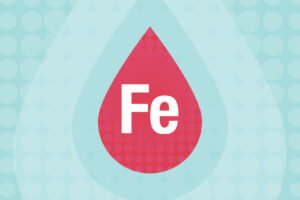While many look forward to the joy and merriment of the winter holiday season, for some, it can be overshadowed by a never-ending “to do” list, family drama, or loneliness. The holidays can heighten anxiety and depression, which can negatively impact your health by lowering your immune system and making you more susceptible to illness. Stress has an amazing impact on the biology of the body—even impacting the function of your cells—leading to sleep issues, anxiety, and other medical issues.
Shopping, cleaning, entertaining, traveling, baking, and a slew of other verbs can weigh down your holiday cheer. But, by altering your mindset and taking steps to minimize stressful scenarios, you’ll feel more present and able to enjoy the beauty and spirit of the season.
1. Plan ahead – To ensure your gift-giving list doesn’t break your bank—and your spirit, make a list of what you want to give to whom, and be realistic about your ability to handle it financially. Alter your list to only include the things you can afford. Stick to your budget, and pay cash as much as you can, because bringing more debt into the new year will cause added stress and strain.
2. Your time is more valuable than stuff – No “thing” is worth more than your time, so think about experiences you can plan with the loved ones on your list. This is especially true for children. Let yourself be silly, because those are the times that your children remember most. I once let my daughter polish my nails red. Yes, I got a few looks at my son’s soccer game, but my daughter had a great time. You can’t buy that level of laughter!
3. Stuff doesn’t equal happiness – Don’t measure the quality of the holiday season by material gains. Be gracious about the gifts you receive, and don’t make the mistake of equating your net worth with your self-worth.
4. Ignore unpleasant people – It’s time-honored advice: “If you don’t have anything nice to say, don’t say anything at all.” It goes both ways: if someone says something unpleasant to you, you have every right to tell them to be quiet. Everyone has an opinion, and everyone believes that they are right. No matter what you say, the other person is likely committed to their beliefs. Try to stay positive, express your own opinion, then move on; don’t engage in a confrontation. Pull out a board game and redirect the conversation.
5. Don’t be afraid to say “No” – Learn to say “no” when you need to, and be brave about saying it. If your child wants a gift that’s inappropriate, your boss wants you to work an extra shift, or if your friend invites you to a party you don’t have time to attend, simply say “no,” and don’t feel guilty about it.
6. Take a time out – Time outs aren’t just for kids. If you need a moment to regroup, get your emotions under control, or just sit with your thoughts, permit yourself a “time out.” If needed, stay at a hotel rather than with family.
7. Cultivate contentment – It’s easy to compare our lives to others’, but reduce your stress and anxiety by focusing on all that you have, not what you wish you had. This may seem simplistic, but the confidence and self-reassurance you’ll generate will boost your mood.
8. Look for laughter – Surround yourself with your happier friends and family. A strong social network is important. If you begin to feel stressed or depressed, don’t isolate yourself; find a friendly face and let their merry mood infect you.
9. Find your faith – If spiritual or religious rites are important to you, take time for pastoral care. Visit your local church, synagogue, mosque, or other house of worship and take comfort in your faith’s seasonal rituals.
10. Show yourself some care – Don’t lose sight of what your body needs during this busy time. Strive to get adequate sleep, make healthy eating choices, exercise to help beat back stress, and surround yourself with a healthy environment by enjoying nature’s seasonal smells, sights, and sounds.
11. Limit alcohol – Alcohol can affect your mood, making you more emotional and decreasing your inhibitions. If you do drink, take the time to savor that glass of wine, cocktail, or beer.
12. Be supportive to your staff – If you’re a supervisor at work, understand that some of your employees may be going through a rough time during the holidays. Be understanding, and reserve your criticism. Everyone can use an extra dose of empathy this year.
Could It Be Seasonal Affective Disorder?
While the holidays can be stressful on their own, shorter days and less light can wreak havoc on your mental state. In the summer, the sun’s rays push your body to produce dopamine, a chemical that makes you feel positive. Winter’s shorter days means you’re secreting less dopamine and more melatonin, the nighttime chemical that signals to your body that it’s time to go to sleep. The result is that you’re probably feeling fatigued earlier in the day and have less energy.
Known as seasonal affective disorder (SAD), this yearly sluggish slump can contribute to feelings of anxiety and stress, and for those who already were depressed, it can increase those feelings. In fact, if you are on an antidepressant, your doctor may need to adjust your dosage to account for your body’s lack of dopamine during the darker seasons.
When you are pleasant to others, it’s will be reflected back to you. Equally, when you project anger toward others, this will be mirrored back to you, which may cause anxiety and depression. So, this holiday season, don’t let family drama stress you out. Remember the reason for the season, and enjoy the time that you have together.
Dr. Moustafa Shafey is a board-certified psychiatrist and forensic examiner. He served as chief of the medical and dental staff and director of the Electroconvulsive Therapy (ECT) department at CentraState Medical Center. Dr. Shafey can be reached by calling 866-CENTRA7.





